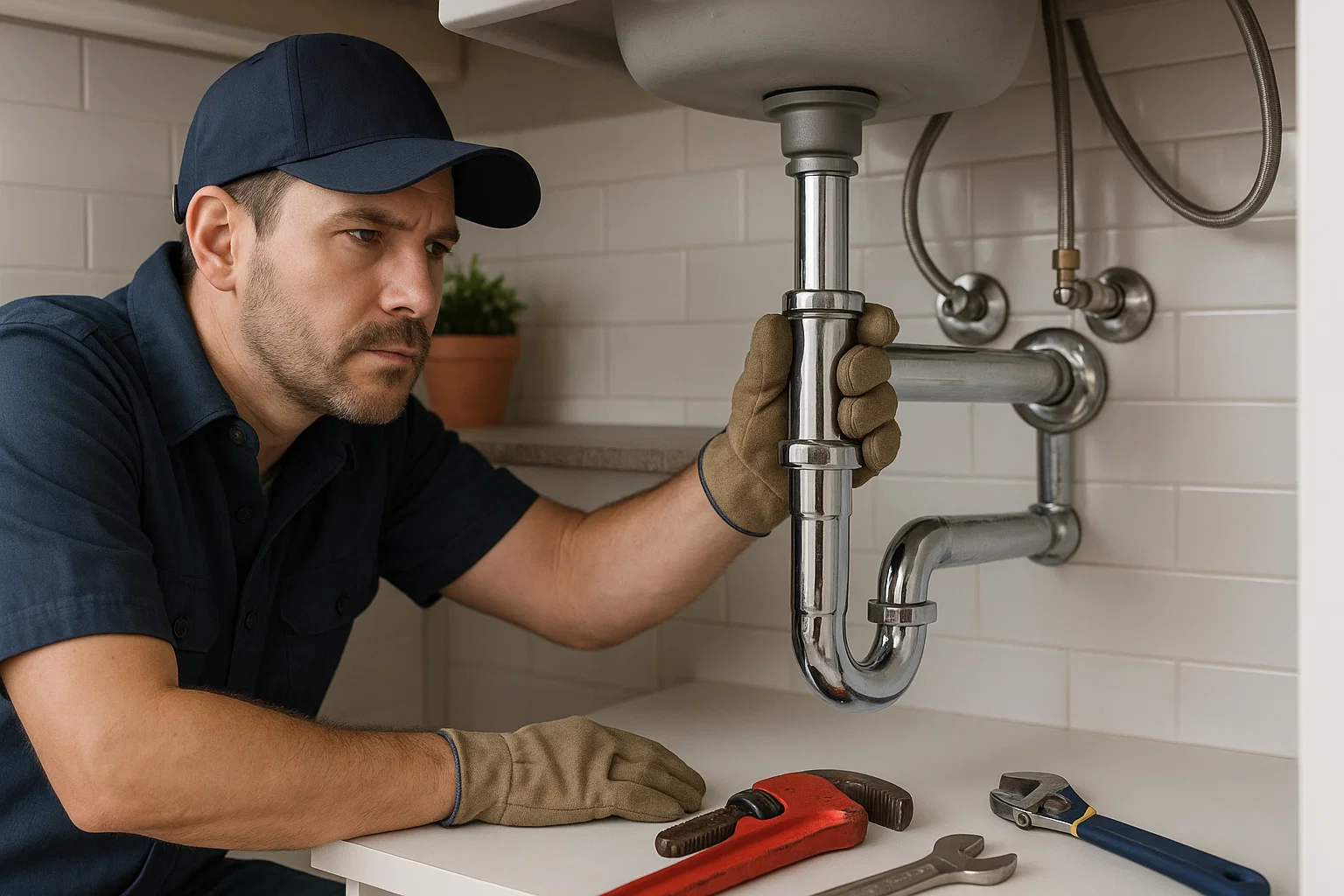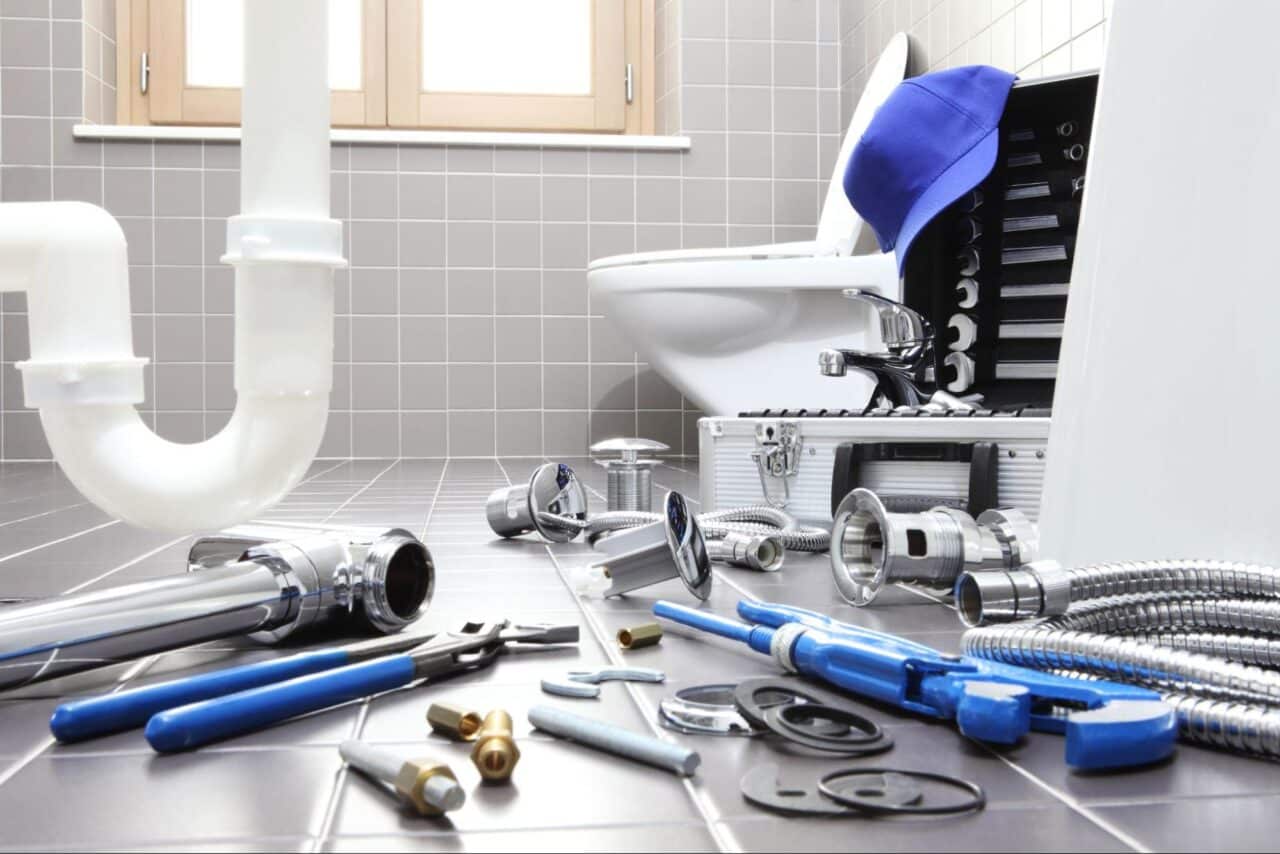When it comes to setting up or fixing plumbing systems, homeowners often find themselves at a crossroads: should they tackle the project themselves or hire a professional? This decision can significantly impact both the project’s cost and its outcome. In this article, we’ll explore the critical differences between DIY vs professional plumbing installation, offering insights that cater to homeowners and real estate developers alike, ensuring you can make an informed decision.

Understanding the Basics of Plumbing
Before diving into the debate of DIY vs professional plumbing installation, it’s essential to understand what plumbing involves. Plumbing encompasses a network of pipes, fixtures, and valves that ensure the proper distribution of water and the removal of waste. Efficient plumbing is crucial for maintaining a healthy and functional home environment.
Components of a Plumbing System
A standard plumbing system includes:
- Water supply pipes
- Drain pipes
- Vent pipes
- Fixtures and appliances (e.g., sinks, toilets, water heaters)
Each of these components plays a vital role in the overall functionality of your home’s plumbing.
DIY Plumbing: Pros and Cons
Many homeowners consider DIY plumbing as a viable option, especially for minor repairs. Here are some pros and cons:
Advantages of DIY Plumbing
- Cost savings: By handling the work yourself, you can save on labor costs.
- Learning opportunity: DIY projects can be educational, allowing you to understand your home’s plumbing system better.
- Immediate action: You can address issues without waiting for a professional’s availability.
Disadvantages of DIY Plumbing
- Lack of expertise: Inadequate knowledge can lead to mistakes and further damage.
- Time-consuming: DIY projects can take longer, especially if you’re unfamiliar with plumbing tasks.
- Potential for costly errors: Mistakes could result in expensive repairs down the line.
Professional Plumbing: Pros and Cons
Hiring a professional plumber ensures that the job is done correctly and efficiently. Here are some pros and cons:
Advantages of Professional Plumbing
- Expertise: Professionals have the training and experience to handle complex issues.
- Time efficiency: Professionals can often complete tasks more quickly than DIY efforts.
- Long-term reliability: Properly executed work by professionals tends to have fewer issues over time.
Disadvantages of Professional Plumbing
- Higher costs: Professional services can be expensive, especially for extensive projects.
- Scheduling: You may need to wait for an available appointment, which can delay urgent repairs.
Factors to Consider When Choosing Between DIY and Professional Plumbing
Several factors can influence whether you should opt for DIY or professional plumbing services:
Complexity of the Task
For simple tasks like unclogging a drain or replacing a faucet, DIY plumbing might be sufficient. However, for more complex jobs like installing new pipes, a professional’s expertise is indispensable.
Budget Constraints
Your budget can significantly impact your decision. While DIY plumbing might save money upfront, costly mistakes could negate those savings. For extensive projects, investing in professional services might be more economical in the long run.
Legal Requirements and Permits
Some plumbing projects require permits and must adhere to building codes. A professional plumber will ensure compliance with these regulations, avoiding potential fines and penalties. For more on this, you can check our article on understanding plumbing permits.
Time Availability
Consider the time you have available for the project. If you’re short on time, hiring a professional might be the best choice to ensure timely completion.
Common DIY Plumbing Projects
Some plumbing tasks are straightforward enough for a DIY approach, including:
- Fixing leaky faucets
- Unclogging drains
- Replacing showerheads
- Installing new faucets
When to Call a Professional Plumber
There are certain situations where it’s crucial to call a professional, such as:
- Major leaks or burst pipes
- Sewer line issues
- Water heater problems
- New plumbing system installations
For comprehensive information on plumbing installations, visit this guide.
Tips for Successful DIY Plumbing
If you decide to tackle plumbing projects on your own, keep these tips in mind:
Gather the Right Tools
Ensure you have essential tools like pipe wrenches, pliers, and a plumber’s snake.
Research and Plan
Thoroughly research the task at hand and plan each step before starting.
Safety First
Always prioritize safety. Wear protective gear and shut off the water supply before beginning any plumbing work.
The Future of Plumbing: Technology and Innovation
The plumbing industry is evolving with technological advancements. Smart home devices and innovative plumbing technologies are making installations and repairs more efficient. To stay updated, check out our article on plumbing apps and technology.
Conclusion
In the debate of DIY vs professional plumbing installation, the best choice depends on your specific situation. Consider the complexity of the task, your budget, and the time you have available. While DIY plumbing can be cost-effective for minor repairs, hiring a professional ensures quality and compliance with regulations for more complex projects. By weighing the pros and cons carefully, you’ll be able to make the best decision for your home or development project.

FAQ
1. What are common DIY plumbing projects?
Common DIY projects include fixing leaky faucets, unclogging drains, and replacing showerheads.
2. When should I hire a professional plumber?
Hire a professional for major leaks, sewer line issues, and new plumbing system installations.
3. Are DIY plumbing projects cost-effective?
They can be cost-effective for minor repairs, but mistakes can lead to expensive corrections.
This article contains affiliate links. We may earn a commission at no extra cost to you.




